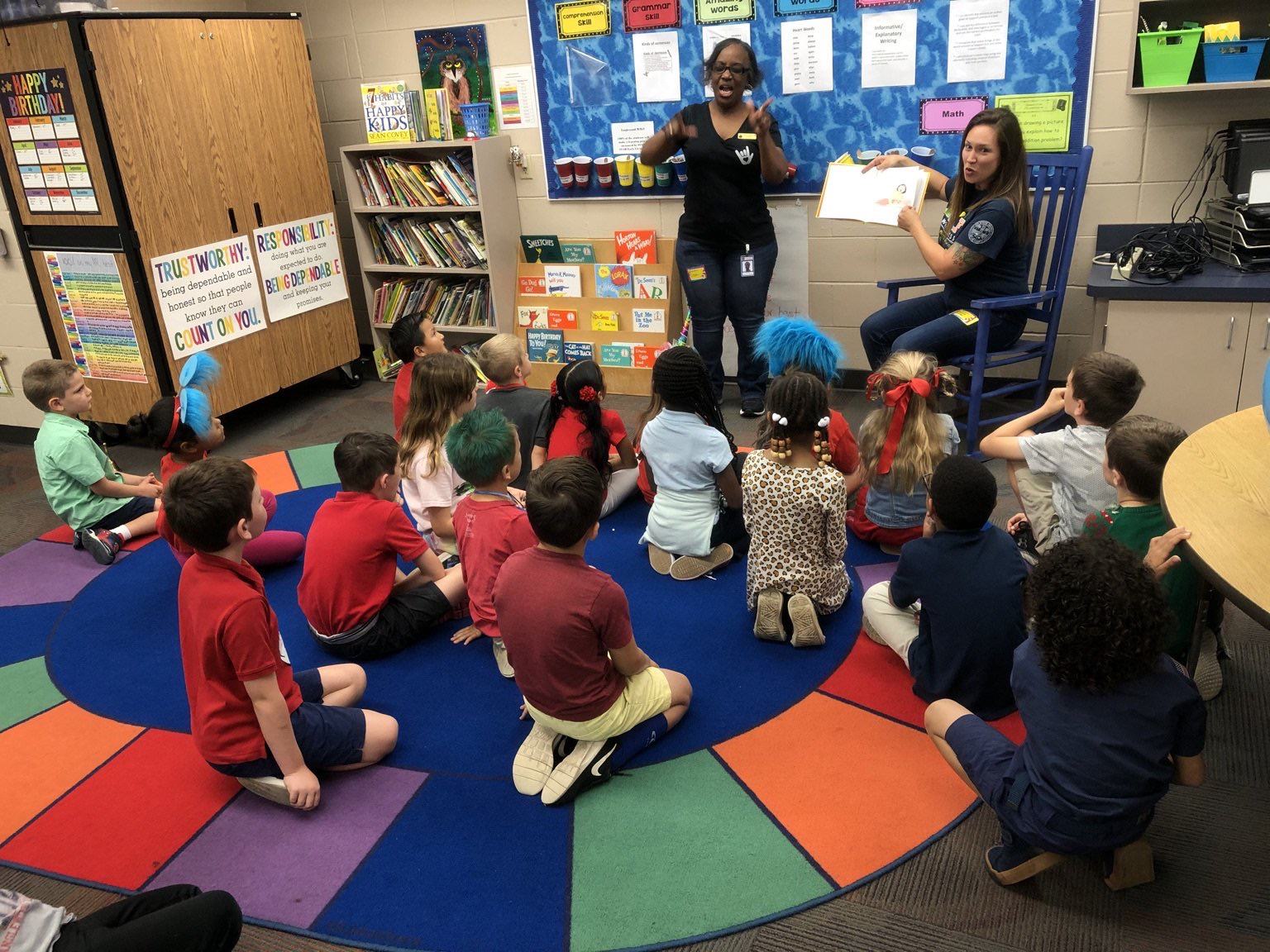
02 Sep 2020 Nonprofit Serves Deaf and Hard of Hearing Community
The ability to navigate life with language that communicates complex thoughts, ideas and emotions makes us uniquely human. But our capacity to connect with and understand each other extends far beyond the spoken word: a raised eyebrow, an unsure smile or a grimace convey a deeper level of expressive meaning. And for Southwest Florida’s deaf residents, such physical cues speak to a rich visual means of communication: sign language.
“Sign language relies so much on facial expressions,” explains Alicia Miller, executive director of the Sally J. Pimentel Deaf & Hard of Hearing Center in Fort Myers. “Those can be thought of as conveying a tone of voice in sign language.”
When that key element of communication among the deaf and hard of hearing community was jeopardized by protective facial masks recommended to promote health and safety during these days of COVID-19, the center responded by acquiring for distribution clear masks that don’t obscure essential facial expression. The nonprofit is also offering them at no cost to teachers who have a deaf or hard of hearing child in their class.
With a mission to promote deaf awareness and education regarding deaf culture, the agency has established an outreach program called “Sign the City” to teach sign language as a communications tool for area businesses, other entities, as well as in common career fields. The goal is to ensure companies and others are able to effectively communicate with the deaf, whether customers or employees, through sign language that’s specific to their particular business, service or field.
The program serves dual purposes: it advocates for the fair and equitable treatment of the deaf community when it comes to access and opportunity, and it helps businesses and other organizations understand the compliance regulations of the federal Americans with Disabilities Act (ADA), which requires them to provide certain accommodations in order to provide equal access – including an interpreter who can communicate in sign language.
The center arranges “lunch and learn” programs tailored to address the specific needs of businesses and other entities throughout the region. “We provide a pre-lunch questionnaire in which they tell us if there are specific words they want us to teach them, along with any common situations or scenarios they want us to cover,” Ms. Miller says.
“We also have a whole section on ADA laws broken down with regards to the deaf and hard of hearing community. One of the biggest points of confusion is that most businesses don’t realize that if they have a deaf or hard of hearing client or customer, then the business is required to hire the interpreter.” She adds that there are exemptions to the requirement if it imposes an undue burden.
The “Sign the City” program was well underway with outreach presentations dating back to February, but when the pandemic struck, the center was forced to postpone the initiative until recently. The program is once again available and is able to be presented in a manner that adheres to CDC guidelines for health and safety.
Adult members of the deaf and hard of hearing community, however, are not the only ones the center supports. Having a child diagnosed as deaf can be a traumatic experience for families because of the implications for childhood development and learning, and the center is there for them with family education resources to help both parents and their children. The offering began as a once-a-month session, but has grown to once a week.
“We teach families more than sign language,” Ms. Miller says. “We also teach them about deaf culture, and it provides an opportunity for parents to be able to talk about the challenges they’re having with raising their child who’s either deaf or they have a cochlear implant. The kids come, they can bring their siblings, aunts, uncles, grandparents. We want the whole family here to be able to learn.”
When it comes to surviving the tumultuous times brought on by the pandemic, Ms. Miller says the support of the Southwest Florida Community Foundation has been essential. “They’ve just been amazing. They removed the fund restrictions so that we were able to use them however we needed to in order to sustain during this time, and they’ve extended the grant support again for next year. That’s such a huge relief because we can really focus on our mission.”
That sound you don’t hear is the expressive motion of the deaf and hard of hearing community lifting their hands and rapidly twisting their wrists in sign language applause.
For more information about the Sally J. Pimentel Deaf & Hard of Hearing Center, please visit https://dhhc.life//. Or call (239) 461-0334.
This article is part of a summer series that highlights the vital work of regional recipients of 2020 Community Impact Grants from the Southwest Florida Community Foundation.
About the Southwest Florida Community Foundation
The Southwest Florida Community Foundation, founded in 1976, cultivates regional change for the common good through collective leadership, social innovation and philanthropy to address the evolving community needs in Lee, Collier, Charlotte, Hendry and Glades counties. The Foundation partners with individuals, families and corporations who have created more than 400 philanthropic funds. Thanks to them, the Foundation invested $7.7 million in grants and programs to the community. With assets of $134.9 million, it has provided $85 million in grants and scholarships to the communities it serves since inception. The Foundation is the backbone organization for the regional FutureMakers Coalition and Lee County’s Sustainability Plan. The Southwest Florida Community Foundation’s regional headquarters are now located in the historic ACL Train Depot at Collaboratory in downtown Fort Myers, with a satellite office located in LaBelle (Hendry County). For more information, call 239-274-5900 or visit www.floridacommunity.com



